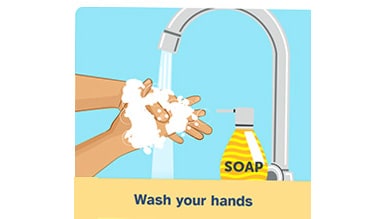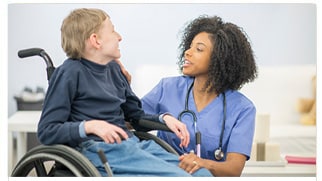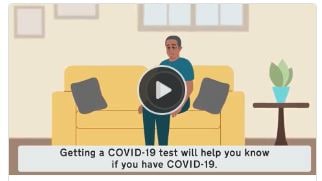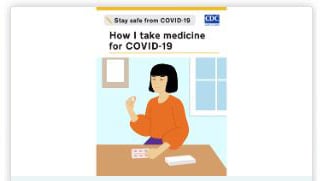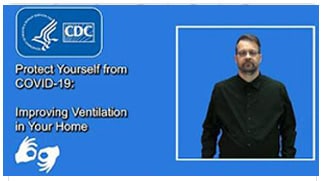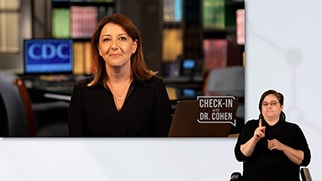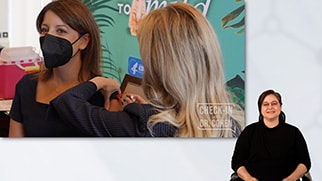Respiratory Virus Resources for People with Disabilities
Some people with disabilities may be more likely to get very sick from flu, COVID-19, or respiratory syncytial virus (RSV). Underlying medical conditions, living in congregate settings, or social determinants of health can add to their risk. Find resources that can help protect people with disabilities.
Connect to Resources that Help People Access Vaccines
Vaccines are the best protection against the severe effects of these respiratory viruses. Resources can help people with disabilities get vaccinated:
- Disability Information and Access Line (DIAL) helps people with disabilities find local vaccination clinics and connect with accessible transportation, in partnership with the Administration for Community Living.
- CDC’s Bridge Access Program provides COVID-19 vaccines for adults without health insurance and adults whose insurance does not cover COVID-19 vaccine costs.
If feeling sick, tests can quickly detect viruses so there are no delays in getting treatment and taking steps to protect family members and coworkers. Treatments are available for flu and COVID-19 that can reduce the risk of severe illness, hospitalization, and death. Find information about testing and treatment: Protect yourself from COVID-19, Flu, and RSV.
Protect Yourself and Others
The best way to prevent infection is to take everyday preventive actions. Using more than one strategy lowers your chances of catching and spreading a respiratory virus or getting very sick:
- Stay up-to-date with vaccination.
- Wear a mask.
- Keep your distance.
- Avoid crowds and poorly ventilated spaces.
- Wash your hands often, or use hand sanitizer made with at least 60% alcohol.
Find Accessible Materials Tailored for People with Disabilities
This section features links to a variety of accessible materials. Updates will be posted as they become available.
Take Additional Steps
People with certain types of disabilities might be at increased risk of becoming infected with respiratory viruses. It may be helpful to have a plan in place to help provide additional protection.
